Well hunters: Finding Madison's long-hidden private wells
posted
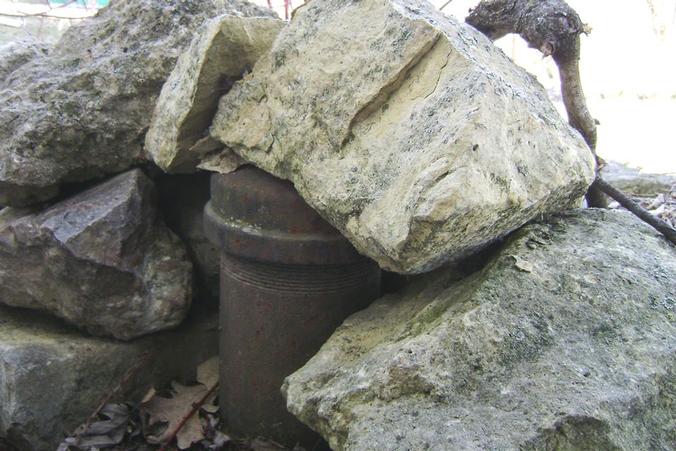
Going door-to-door
Kevin Miller has been knocking on a lot of doors lately, but he's not selling anything. He's searching for something.
I usually say, 'I'm here to look for private wells.' And then I get the questions, 'Why would you be doing that?'"
Like city-owned water wells, private wells are direct conduits to the aquifer below Madison. Some homeowners are up-to-date on required permits and still use their private wells, but many have no idea that long-forgotten pathways to the aquifer are sitting right below their homes.
That's when Miller – who works in the water quality department at Madison Water Utility – gets to work.
"There are a lot of people who say, 'Oh we've been on city water since 1950.' But the house was built in 1925," Miller explains. "So what did they do for water from 1925 to 1950? Then I find (a well) and people are amazed."
For decades, few records were kept in Madison to track private wells once a home was connected to city water. Even now, as properties trade hands, the wells are often missed by home inspectors.
"I've run across a number of them where people are told it's a cistern, so they hook their downspouts to it," Miller says.
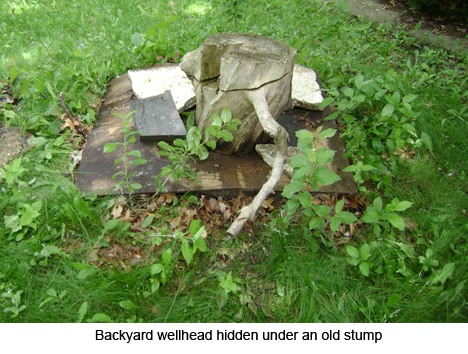
What's at stake
For Madison Water Utility, private wells are a major issue when it comes to water quality, and finding them is a key component of the utility's groundwater protection plan. Miller has seen firsthand the damage that can be done by unknowing homeowners who dump contaminants in or near a well.
"One well terminated underground in an (attached) garage. For some reason the guy thought it was a good place to dump his used motor oil," Miller recalls, noting that it took days to bail oil sludge out of the well. "He thought it was a floor drain. You shouldn't do that even if it is a floor drain!"
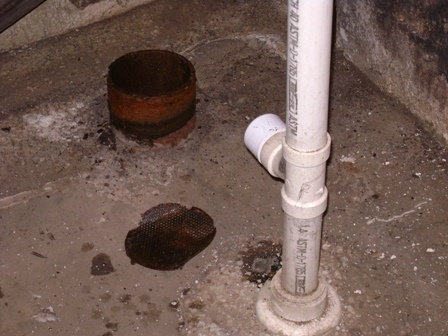
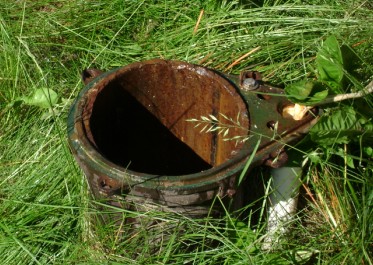
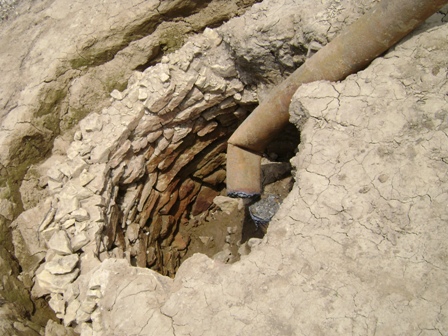
Once a well is discovered, Madison Water Utility takes steps to make sure it's properly sealed and abandoned according to DNR regulations. The utility provides a partial reimbursement to help homeowners offset the cost, and the DNR also offers a grant-based reimbursement program.
Miller says every time an unused private well is abandoned, it's a win. But with hundreds of forgotten private wells still out there somewhere in Madison, total victory is still a long way off.
"It's rewarding, but then it's also kind of scary to think there are that many out there. There's a lot more that needs to be done."
Subscribe to Water Utility News & Alerts Updates
Archive
Categories
- All Posts »
- History (8)
- Our People (11)
- Serving the Community (29)
- Sustainability (27)
- Water quality (15)
Tags
- aquifer
- Arbor Hills
- AWWA
- Barrymans
- Blackhawk
- Booster Pump Station 106
- CAP
- capitol
- chloride
- chlorine
- Clean Water
- Climate Change
- Common Council
- Community
- Conservation
- cost
- cost of water
- Customer Care
- Customer service
- disinfection
- drinking water
- Education
- efficiency
- energy
- engineering
- environment
- EPA
- Fire
- Fire protection
- Flooded houses
- freezing
- Frozen pipes
- Got Water
- Got Water?
- graywater
- Greywater
- healthy kids
- History
- hydration
- Imagine a Day Without Water
- Inclusive workplace
- Infrastructure
- John Heim
- John Muir
- Lake View Hill
- lakes
- lead pipes
- lead service replacement program
- leaks
- Lou and Peter
- Lou and Peter Barryman
- Low Income
- Mad City Tappers
- Mad Women on Tap
- Madison
- Madison City Channel
- Madison Kipp
- Madison Municipal Services
- Madison Water
- madison water utility
- Madison Water Utility
- Main breaks
- Michael Edmonds
- MWU
- New well
- North Madison
- O'Dea
- Operation center
- Paterson
- Perfluorinated compounds
- PFAS
- pipes
- Placemaking
- plumbing
- Private Wells
- Project H2O
- Project Home
- Projects
- Public Works
- pumping
- Recycled water
- Remucal
- Reservoir Park
- Road Salt
- Safety
- shower
- Southeast
- stormwater
- study
- Survey
- Sustainability
- Tap Water
- Tapping Team
- TeamCity
- Technology
- Testing
- Testing
- Toilet Rebate
- UW
- UW Madison
- Wanda Fullmore Youth Internship Program
- water
- Water
- water bill
- Water board
- Water conservation
- Water Main
- Water main flushing
- Water Mains
- Water Quality
- Water Quality Report
- water safety
- Water supply
- Water Tower
- Water Utility
- Water Wagon
- Water Works
- WaterSense
- watershed
- Well 14
- Well 31
- Well 8
- Wellhead Protection
- West Madison
- west side
- Winter
- Winter Safety
- Winterization
- WiSaltWise
- Women's
- Women's History Month
- World War II
- WWA
